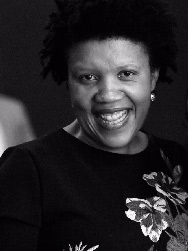Matlo diotlwana: signs of sorrow or resurgence?
Lalu Mokuku

“Matlo a matle diotlwana ka ntle” is a Sesotho expression that can loosely be translated to mean households are beautiful from the outside. This expression can figuratively refer to the convolution and smugness around ‘secrets’ and ‘sacred’ occurrences that shroud households. At the same time, it may reflect the protective strategies that some households have devised against shame and judgments, once their ‘secrets’ and/or ‘sacred’ occurrences are in the open. For certain households, word of mouth and the advent of social media has created an opportunity to keep appearances even more beautiful, to avoid the backlash of shame and judgement. One of the ‘best kept secrets’ in households include problems with mental health, specifically depression.
In relation to the creative sector, this notion of “matlo diotlwana” has piqued my curiosity, especially as it relates to the lengths that those involved in the arts and creative sector may take in an endeavor to keep up appearances of “wellness”.
Recently, ASSITEJ South Africa participated in the STAND TOGETHER summit organized by Sustaining Theater and Dance (STAND) Foundation in partnership with Toyota US Wordfees, to amongst other things, reflect on the state of the arts and creative industry within the current context in South Africa. At the summit, it became apparent that the health and wellbeing of the artists and those in the creative sector needs a delicate and well informed approach to address it. A dancer and STAND Foundation board member, Lesego van Niekerk said that the health and wellbeing of those in performing arts industry is important to consider at all levels; for example, there are certain bodily harms that artists such as those in classical dance fraternity may inflict on themselves in order to conform to the industry standards. There is a level of ideological shame and violence that is troubling as it appears to be consistent with the colonial mentality of universalizing ways of knowing and being, and in the process harming those it comes into contact with, resulting in devastating trauma across generations.
The COVID-19 pandemic has permeated households and amplified structural, digital and systematic inequalities that artists, especially in the rural areas endure. It is therefore worrying when research about the sector by players such as the SA Cultural Observatory (https://www.southafricanculturalobservatory.org.za/content/covid-19-impact-survey-report-on-ccis) reveals limited methods to data gathering which impacts on the subsequent analysis. At the summit, the devastating “biophysical and economic impact on the creative sector caused by COVID-19 pandemic” was noted. Personally, I wonder deeply about care, especially as it relates to the protection of children and young people who are under the care of those involved in the arts and creative sector.
A Consciousness Coach and Saffron Consciousness Director Motšelisi Motsieloa Silindane, recognises the adverse impact COVID-19 has had on society broadly and says that this has led her in conceptualizing a responsive approach that can support individuals and families to manage their wellbeing responsively. In a recent workshop that she facilitated for Im4theArts Spring “Art of Resilience” workshops (www.im4thearts.org.za), it became apparent that more self-care is needed if we are to grow an industry of healthier practitioners. The workshop offered a moment of dialogue that ensured that participants were offered a much-needed “me” moment.
The issue of depression is not unique to the creative sector; however, the way social expectations of artists may lead to keeping up appearances needs to be questioned. Acknowledging that “matlo a matle diotlwana ka ntle” may lead us to consider caring for those who care for us through their art. Considering what could be yours to do will be invaluable, not only because October spotlights the issue of mental health, but because those in the spotlight, may need our light now, more that we can imagine.
- Lalu Mokuku is the chairperson of ASSITEJ South Africa and Executive Member of ASSITEJ International. She represented ASSITEJ SA at the summit (www.standfoundation.org.za).
